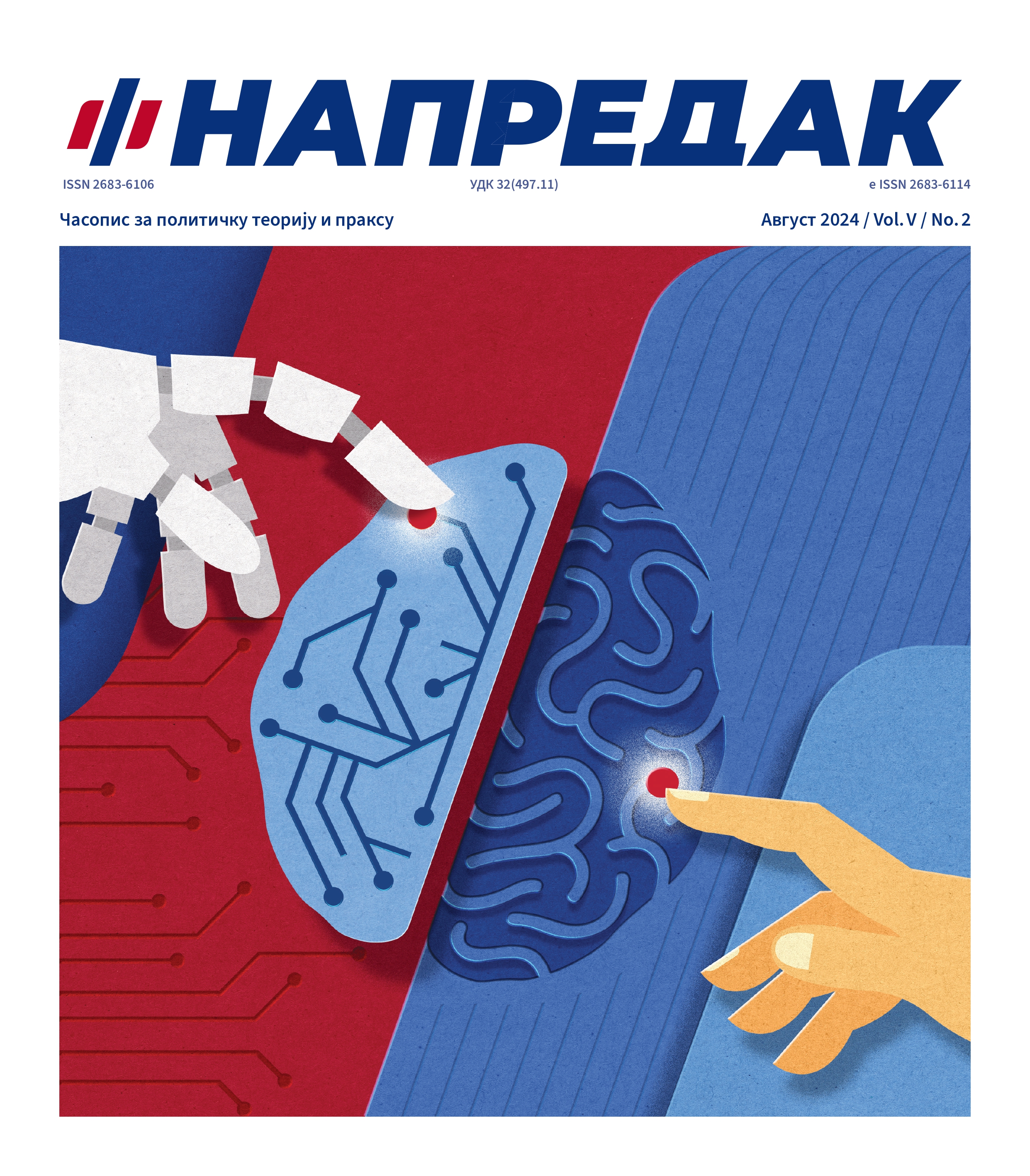Artificial intelligence as a challenge
Abstract
This paper addresses the technology of artificial intelligence as a modern challenge. The main purpose of this article is to motivate all interested parties, the government leaders, scientific and expert public, lawyers, innovators, as well as end users to consider the challenges deriving from the application of this technology. Interpreting the technology of artificial intelligence from the perspective of different disciplines and practices contributes to its better understanding, while emphasizing a broad range of risks is a step forward in identifying and understanding the problems which we must readily encounter. If possible, some of the problems should be avoided and prevented in a timely manner. The main goal of the paper is to point to the challenges deriving from the application of this modern technology and raise awareness of the importance of organizing production and application of artificial intelligence technology. The paper starts from the hypothesis that knowing and resolving the broadest possible range of challenges is a prerequisite for regulating this modern technology for the common good. The article provides the analysis of content and a detailed review of literature dealing with artificial intelligence from the perspective of different scientific disciplines. The importance of the study is seen in its being a useful stimulus for initiating a debate about this topic. The social contribution of this study is huge because it puts forward the question of the challenges of artificial intelligence and leads to the strengthening of the awareness of the need for identifying and considering all potential challenges for the sake of their resolution. It is in the interest of whole humanity to focus on regulating artificial intelligence, with the primary focus on the achievement of general social welfare, and not on mere acquisition of profits or some other interest advantages. Only in this way can we protect ourselves from potential harmful consequences of this modern technology.
References
Allyn, B. (2023). ’The godfather of AI’ sounds alarm about potential dangers of AI, NPR. Available at: https://www.npr.org/2023/05/28/1178673070/the-godfather-of-ai-sounds-alarm-about-potential-dangers-of-ai
Bostrom, N. (2014). Superintelligence: Paths, Dangers, Strategies. UK: Oxford University Press.
Donald, D., Aditya S. S., T., Rekha, K., Anjali, D., Dwaraka S. (2023). The Data Revolution: A Comprehensive Survey on Datafication. International Journal of Advanced Research in Science, Communication and Technology, III (1), 41–51. DOI:10.48175/IJARSCT-9007
EU Artificial Intelligence Act (2024). Up to date developments and analysis of the EU AI Act. Available at: https://artificialintelligenceact.eu/
Goos M, Manning, А., Salomons, А. (2014). Explaining Job Polarization: Routine-Biased Technological Change and Offshoring. American Economic Review, CIV (8), 2509–2526. DOI: 10.1257/aer.104.8.2509
Jones, B. (2024). AI literacy fundamentals. Washington: Data Literacy Press.
Kissinger, H., Schmidt, E., Huttenlocher, D. (2023). The Age of Artificial Intelligence and Our Human Future. Beograd: Club Plus. [In Serbian]
Luknar, I. & Jovanović, F. (2024). Various types of cyber threats. Srpska politička misao, LXXXIII (1), 161–177. DOI: 10.5937/spm83-46059 [In Serbian]
Luknar, I. & Jovanović, F. (2023). An Ethics for Emerging Technologies. In: Đ. Jovanović et al (eds) 2nd International Conference Proceedings “Conference on Advances in Science and Technology COAST 2023” (1046-1056). Montenegro, Herceg Novi: Faculty of Management.
Mandić, D., Miščević, G., Bujišić, Lj. (2024). Evaluating the quality of responses generated by ChatGPT. Methodology Theory and Practice, XXVII (1), 5-19. doi:10.5937/metpra27-51446
Pinto, T. (2024). General-purpose AI under the AI Act. Available at: https://artificialintelligenceact.com/general-purpose-ai-under-the-ai-act/
Russell, S. & Norvig, P. (2009). Artificial Intelligence: A Modern Approach (3rd Edition). UK: Pearson.
Times Now (2023). Elon Musk raises alarm bells: AI – ’The most destructive force in history!’ Available at: https://www.timesnownews.com/technology-science/elon-musk-says-ai-the-most-destructive-force-in-history-article-104942193

